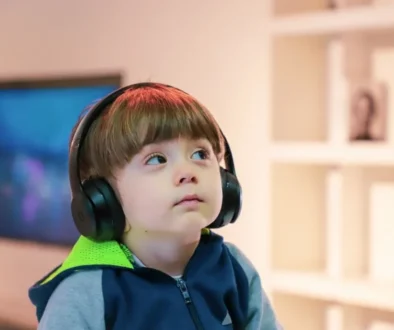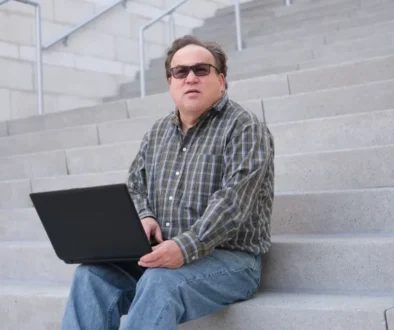Can a Neurologist Diagnose Autism? The Ultimate Guide
Autism Spectrum Disorder (ASD) impacts 1 in 36 children in the United States. This intricate neurodevelopmental condition introduces various diagnostic complexities. Since there are so many professionals involved, can a neurologist diagnose Autism?
Not knowing this can lead to misinformation. Identifying the appropriate specialists can enhance the diagnostic journey. Continue reading to uncover the role of neurologists in the autism diagnostic process.
Understanding Autism
ASD is a complex neurodevelopmental disorder that affects individuals across the lifespan. It encompasses a range of symptoms revolving around:
Social Communication
Individuals with ASD may struggle with aspects of social interaction. They may have trouble understanding non-verbal cues or maintaining eye contact. They might also find it challenging to build and maintain relationships.
Repetitive Behaviors
These can manifest as specific rituals, repeated actions, and intense focus. Such behaviors offer a sense of routine and predictability.
Distinct Interests
People with ASD might have specialized interests. They dive deep into specific topics, showcasing remarkable expertise. They are also known as Savants, a subset of Autism with profound capacities for a skill set.
These exceptional skills can manifest in mathematics, music, art, or memory. Not all individuals with Autism have savant abilities.
The Neurologist’s Role in Autism Diagnosis
Neurologists stand at the forefront of medical disciplines equipped with ASD. As experts in the brain and nervous system, they play vital roles in the neurological aspect.
Autism exhibits certain traits and patterns in the brain. Neurologists can identify these distinct patterns and anomalies in brain functions. They often:
- Use neuroimaging techniques
- Test neural pathways
- Analyze connectivity and structure
Diagnosing Autism is not the only domain of neurology. ASD involves developmental, behavioral, social, and psychological issues. Its multifaceted characteristics need various professionals in different fields, such as:
Psychologists
They assess cognitive functioning, emotional regulation, and behavioral patterns. Their insights can help delineate the nature of social and communication challenges.
Psychiatrists
They address coexisting mental health conditions, such as anxiety or depression. These conditions can often go with Autism. Psychiatrists can also guide potential medicinal interventions that might be beneficial.
Developmental Pediatricians
These specialists focus on early childhood development. They can identify deviations or delays in developmental milestones.
How to Diagnose Autism
The journey to diagnosing ASD demands careful attention to behavioral and developmental cues. Here are the steps involved:
Initial Observations
Parents or educators are often the first to notice signs of behavioral problems. These observations include challenges with social interactions, repetitive actions, or difficulties with communication.
Routine Pediatric Screenings
Doctors conduct developmental screenings during regular pediatric check-ups. These assessments help identify if a child is meeting appropriate developmental milestones.
Referral Due to Concerns
Referrals occur when the initial screenings raise concerns about possible developmental disorders. The pediatrician usually refers the child for a more in-depth assessment.
Comprehensive Diagnostic Evaluation
This part is the second tier of evaluation. It’s a more exhaustive process that involves a team of:
- Psychologists
- Neurologists
- Psychiatrists
- Speech therapists
They assess the child’s behavior, communication abilities, and interactions. They might also use specialized tools to determine the presence and severity of ASD.
Feedback and Recommendations
The team provides feedback to the family, outlining their findings and diagnosis. If the child has Autism, they suggest a roadmap for treatment to assist the child and the family.
Recognizing Autism: Key Indicators
Autistic individuals exhibit a range of signs. Common symptoms encompass:
- Challenges in social interactions
- A narrow range of interests
- Repetitive behaviors
Neurologists may also check for related neurological conditions. For instance, epilepsy is more prevalent in children with Autism.
The Importance of Prompt Diagnosis
Recognizing ASD at an early stage can impact an individual’s journey. When identified early, individuals can access effective interventions. Here’s why prompt diagnosis is pivotal:
Tailored Interventions
Early diagnosis facilitates customized interventions that cater to the individual’s needs. This approach allows for more focused support during critical developmental periods.
Enhanced Therapy Efficacy
Behavioral, speech, and occupational therapies are effective when initiated early. These can improve an individual’s communication skills, social interactions, and adaptive behaviors.
Support for Families
Early diagnosis also benefits families, allowing them to understand the condition better. This understanding can foster a supportive environment, ensuring holistic growth.
Diagnostic Tools
When posed with the query, “Can a neurologist diagnose autism?” They have some tools at their disposal. These include brain imaging, neurological evaluations, and genetic testing. They also conduct Autism Diagnostic Observation Schedules (ADOS) and patient history assessments.
Navigating Life Post-Diagnosis
An autism diagnosis often marks a profound shift in one’s life trajectory. Living with this condition presents challenges but also offers unique insights and capabilities. A blend of therapeutic interventions and familial support leads to a fulfilling life.
Autism Help: Seeking Support
Seeking supportive resources improves the lives of those living with autism. Interventions can span from behavioral approaches to occupational therapy. Medications might also help with associated symptoms.
A Team-based Approach to Autism
A neurologist’s expertise is invaluable in diagnosing Autism. The most holistic assessments often incorporate a multi-disciplinary team.
It will need educators, occupational therapists, and more. This plan addresses all facets of the individual’s condition.
Autism Beyond Childhood
Autism is not only designated for children. Adults on the spectrum can encounter hurdles like social relationships and employment.
While there’s increased recognition and resources, a gap remains. The problem lies in areas like vocational support.
Debunking Autism Myths
Despite increased awareness, myths about Autism abound. Erroneous beliefs, such as vaccines causing Autism or a behavioral issue, persist.
It’s vital to ground your understanding in scientific evidence. Neurologists and other professionals can dispel these myths with factual, research-backed insights.
Valuing Neurodiversity
Autism enriches the diverse mosaic of human experiences. Each offers unique strengths and perspectives.
With societal acceptance and expert guidance, those with Autism can flourish. We pave the way for a more inclusive society by creating more educational resources.
Can a Neurologist Diagnose Autism
Yes, but they can’t do it alone. Their in-depth brain and nervous system knowledge can help connect the dots. The question, “Can a neurologist diagnose autism?” is addressed through their comprehensive training and collaboration with other healthcare professionals.
For a holistic evaluation and a guided approach to your child’s needs, we can help. Explore Developmental Pediatrics services today for specialized guidance tailored to your child.



